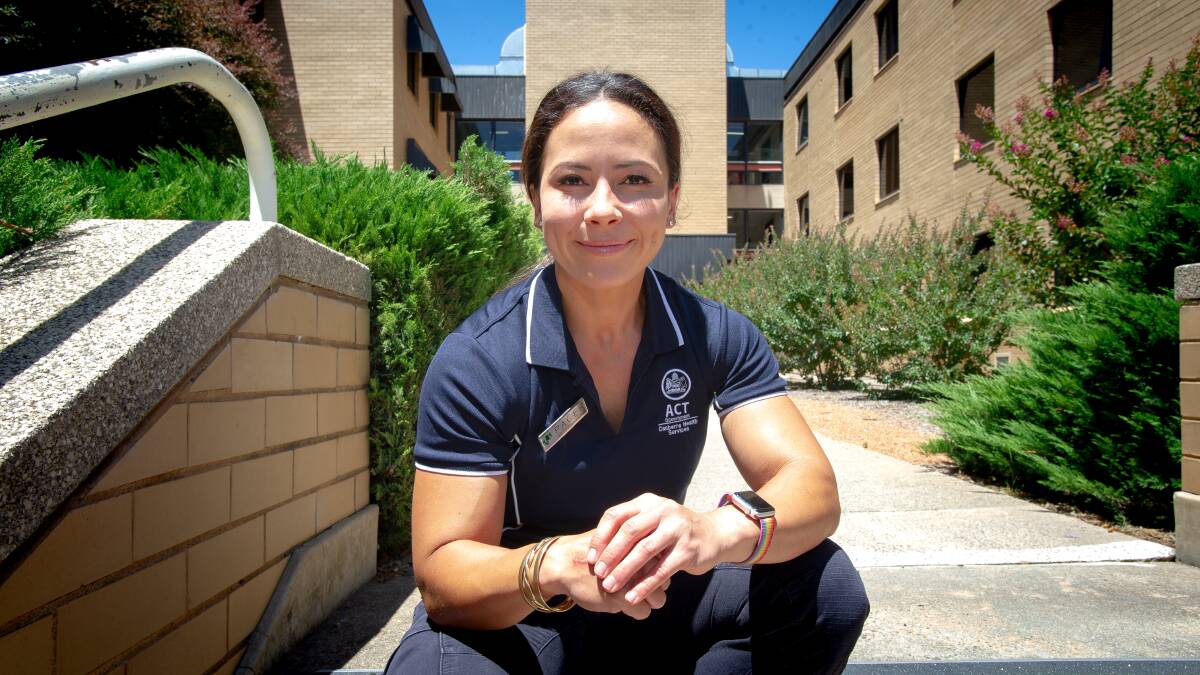
When Faye Honeybone was in her graduate year as a registered nurse, she saw the impact a good nurse and a bad nurse could have in the psychiatric ward.
Subscribe now for unlimited access.
$0/
(min cost $0)
or signup to continue reading
Now Ms Honeybone, a mental health clinician, working with PACER - which combines police, ambulance and mental health clinicians - gets to make an impact beyond the hospital.
The Police, Ambulance, Clinician Emergency Response program - known as PACER - sees teams of three travel in an unmarked car to mental health incidents across the territory.
The program aims to help people stay out of hospital and instead provide on-the-ground assistance.
The scheme has operated seven days a week since July, and Ms Honeybone was among the first all-female crew to hit the road.
"I have learnt so much working within the role of PACER. All of the staff that are employed in PACER are working in PACER because they have an interest and are willing to work with people who are experiencing acute distress and have a positive impact on them," Ms Honeybone said.
When Ms Honeybone arrives at work, she meets with the police officer on duty.
"We get our equipment. I get my own medications ready. He or she gets their equipment for the day and then we go to the ambulance station together to pick up the ambulance and get the car ready to go out," she said.
From there, the team either waits to be allocated a job or heads straight out, checking notes on the road to be better prepared.
Ms Honeybone said a united team that arrived at the same time and was comfortable working together made a big difference in responding to an incident.
Instead of different agencies arriving at different times, and often drawing more attention to the situation than necessary, PACER crews could start helping people sooner, Ms Honeybone said.
"Something that's been mentioned to me is that paramedics have noticed over the last few years there have been increasing mental health presentations, so having the direct access to a clinician to ask questions to is hugely beneficial," she said.
READ MORE:
Ms Honeybone said PACER, which recently hit the road with an all-female unit after a female police officer joined the program, had already helped shift public perceptions of mental health care.
"Our aim is not to lock everyone up. I guess that's a really basic over-the-top simplification, because of the things that people see in the media, dramatised. But that's not actually what happens. We try to provide as much education at every contact as we can to assist people to remain in the community," she said.
Ms Honeybone said the PACER program's impact was also spreading among practitioners.
"Through ambulance, police and mental health, we are educating our junior staff members. We have students. We have postgraduate students. It is really a good opportunity to heighten [the mental health] role," she said.


